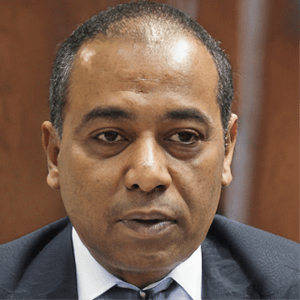Investigations reveal a pattern of falsification among Sewerage and Water Board employees, casting doubt on the safety of the city’s drinking water.
Recent investigations by the Louisiana Illuminator and WVUE-TV Fox 8 have uncovered a disturbing pattern of falsification of water testing data by employees of the Sewerage and Water Board (S&WB) in New Orleans. The data, which is used to assess the safety of the city’s drinking water, is submitted to the state health department and is crucial in ensuring compliance with federal water regulations. The revelations have raised concerns about the accuracy of the water quality data and the potential risks to public health.
Fabricated Sampling Data
The investigations revealed that at least five S&WB employees, including plant worker Louis Pierre Jr. and employee Lakiethia Ross, falsified water testing data by either skipping sampling locations or providing inaccurate information about their sampling activities. GPS data from their work vehicles showed discrepancies between their reported sampling locations and their actual stops. This pattern of falsification suggests a systemic issue within the S&WB.
Implications for Public Health
The falsification of water testing data raises serious concerns about the safety of New Orleans’ drinking water. The data submitted to the state health department is used to ensure that the water is adequately disinfected to prevent the growth of harmful bacteria. If the data is inaccurate, it calls into question whether the water has been properly treated and whether it is safe for consumption. Experts, including drinking water system expert Marc Edwards from Virginia Tech University, have emphasized the potential risks to public health if the water is not adequately tested and treated.
Consequences of Falsification
The consequences of falsifying water testing data are far-reaching. The skipped sampling locations were deprived of regular monitoring for chlorine levels and bacterial contamination, which are essential for safeguarding public health. The average time between sampling stops increased significantly, leaving neighborhoods at risk of potential contamination. Furthermore, the falsified data submitted to the state health department could lead to violations of federal and state water regulations. Penalties for such violations can range from fines to jail time.
Lack of Trust and Accountability
The revelations of falsification raise questions about the integrity of the S&WB and its ability to provide accurate and transparent information about the quality of the city’s drinking water. Trust in the agency has been eroded, and residents are left uncertain about the safety of their tap water. The S&WB must be held accountable for these actions, and steps must be taken to restore public confidence in the agency’s ability to ensure the safety of the city’s water supply.
Potential Legal Consequences
Falsifying water testing data is a serious offense, both legally and ethically. The Sewerage and Water Board could face legal consequences, including civil and criminal enforcement, from both state and federal agencies. In previous cases of data falsification in other water systems, employees have been sentenced to prison time and faced hefty fines. The severity of the consequences will depend on the findings of the ongoing investigations by the Louisiana Department of Health and the Environmental Protection Agency.
The falsification of water testing data by employees of the Sewerage and Water Board in New Orleans has raised significant concerns about the safety of the city’s drinking water. The pattern of falsification, involving at least five employees, suggests a systemic issue within the agency. The implications for public health are alarming, as inaccurate data could lead to potential risks and illnesses. The S&WB must be held accountable for these actions, and steps must be taken to restore trust and ensure the safety of the city’s water supply. The ongoing investigations by state and federal agencies will determine the legal consequences for the agency and its employees. In the meantime, residents of New Orleans are left questioning the reliability and safety of their tap water.

Andre Rogers has been a content and opinion writer for many popular online publications over the years. Andre is now our chief editor at Louisiana Informer. Andre specializes in current trends and technology.




